What is the point of horror?
I don't mean this question facetiously, I'm really asking. As the genre goes, I've never really gotten into horror. Or, well, I've never much gotten into modern horror. I like me some gothic literature, I really enjoy eldritch horror (Lovecraft, et al), and I think horror-comedy is a brilliant and fantastic invention. But I've never really managed to develop a taste for mainstream horror films.
Now part of this could be because my chief exposure to horror movies came when I was in high school and my then-boyfriend and I would trade movies back and forth. I'd go see Butterfly Effect, he'd sit through Nicholas Nickleby. I watched The Hills Have Eyes, he'd watch Little Women. And so on. I never really watched one of those movies because I actually wanted to, and as time went on I upped the stakes of the game to reach for more obscure and girly films just to counteract the aftertaste of all the gore and jump scares he kept making me sit through.
Also, the first time I saw The Ring was in Austria and it was dubbed into German, of which I only spoke a little at the time, and the whole thing is so much more terrifying when you have no idea what's actually going on.
So I think it's probably not surprising that I never managed to "get" horror films. The majority of the time I was watching a film where the audience was being asked to cheer for the lead characters' deaths. The movies where a lone girl might survive, the "final girl", but only if she was good and sweet and innocent enough to not be killed in a retribution against her promiscuous ways. I wanted movies where the female characters were in charge of their lives and, doomed or not, their fate were because of their own choices.
Which is why I am so happy to tell you all that I've now seen Crimson Peak and it is exactly what I wanted from a horror movie. Full stop. It's also pretty much what I want out of a period piece, though that is ancillary to today's argument. Crimson Peak is great. It's a fantastically filmed and directed bit of gothic horror that manages to completely express how a woman can be both in charge of her own destiny and also caught up in a horror plot.
It's so good. (And this review is full of SPOILERS.)
The film has the sort of pedigree that can make for either an amazing dark horse superstar or a dramatic flop. Written and directed by Guillermo del Toro, the movie stars Mia Wasikowska as Edith Cushing, a sweet bookish young woman in late 1800s upstate New York. Edith is a nerd, simply put, and she wants to be a writer. Her book of choice? Ghost stories. Or, rather, a "story with a ghost in it." Unfortunately, Edith's ambitions are stymied by the sexist publishing industry of her time, so she finds herself looking for more and more complex ways to get a book into an editor's hands.
Her father, Carter Cushing (Jim Beaver), is perfectly happy that his only child would rather read and write than attend balls and flirt. He thinks she's great and they have the kind of relationship you rarely get to see: a healthy and respectful close relationship between father and daughter. Right on!
Into all of this cuteness steps Thomas Sharpe, Baronet (Tom Hiddleston). Thomas Sharpe is an inventor from England who wants Carter Cushing to invest in his new mining apparatus. But while he tries to secure funding, he also appears to fall deeply in love with Edith. He's so handsome and dramatic and romantic and tragic - he's everything your average gothic heroine could want in a man!
It's too bad that his sister, Lady Lucille Sharpe (Jessica Chastain), seems to disapprove. But Edith is smitten and not even her father's disapproval can turn her away. Granted, there seems to be a hitch when Carter sets a private detective on the Sharpes and then pays them to go away, but the next day Carter is found dead in a pool of his own blood, so clearly this isn't a real obstacle. Edith and Thomas get married and go away to Allerdale Hall, his ancestral home, and the real story begins.
See, there's another story in here too, one that is easily forgotten in the bustle of the romance and the murder: Edith Cushing can see ghosts. While she never really brings this up with Thomas, she has a long conversation with Alan about it, and even tells us in voiceover that when she was a little girl, her mother's ghost visited her and warned her, "Beware Crimson Peak!" It's just that those words meant nothing at all to her until it was too late.
So our heroine ends up at this ramshackle old manor in the English countryside, only to find that it is nicknamed "Crimson Peak" for how the red mud bleeds through the snow in winter to make the whole hillside look like it's made of blood. Charming.
Obviously Thomas and Lucille have lured Edith here for some nefarious reason, but exactly what that reason is requires more investigation. The bulk of the second act of the film follows Edith as she acclimates to life at Crimson Peak and then her growing horror as she discovers that something is not right and she is in grave danger. It doesn't help that she keeps seeing horrible ghosts everywhere. These grotesque decayed bodies of ghosts - always bright red - that follow her around and reach out their arms to her.
The big turn comes when Edith realizes that the ghosts aren't trying to hurt her, they're trying to warn her. Warn her of what? That she's about to be next.
Now, I won't spoil exactly what the danger is, but I will say that in a weird way, I was impressed by how simple and prosaic it actually ends up being. I was anticipating that there was some kind of deal where the basement of the house led straight to hell or there were condemned souls trapped in the bricks of the manor or everyone who lived there had been dead for centuries or something. But no. And in a weird way that actually makes the story better. Not to give too much away, but just like Edith insisted at the beginning, this isn't a ghost story, it's a story with a ghost in it.
It's also, and this is why I think I like this film so much, a movie where the horror is real and terrifying, but all the characters act in ways that actually make sense. Edith walks blithely towards her own doom because it never occurs to her that something out of a story might be real. Alan pursues her and investigates the mystery because, well, she's his childhood friend and he's worried about her. Thomas and Lucille have sinister motives, but those sinister motives are actually pretty normal and understandable.
In other words, it's the rare horror movie that manages to let all of its characters keep their brains and characterizations, but still is genuinely quite frightening. I appreciate that.
It's just so satisfying watching Edith come into her own, but it's also satisfying because she was never really a damsel. She was a woman who made a mistake and then did something about it.
I guess what I'm getting at is that I appreciate Crimson Peak for not underestimating the audience. It would be easy for a film like that to assume that we all think Edith is stupid for going off with Thomas and Lucille in the first place, but that's not the case. Edith is allowed to be smart and sensitive and very clever and also to make mistakes. She doesn't have to be perfect for us to like her. We like her just fine as she is.
And the movie also doesn't try to tell us that Edith "deserves what she gets" for choosing Thomas over Alan. Alan pretty much steps back and lets Edith make her own choices. He doesn't tell her not to marry him or even say anything rude. He gets a little rough with Thomas only when Edith asks him to, and even at the end of the film he's still unfailingly polite. Alan is a nice guy, not a Nice Guy. He doesn't think Edith owes him crap, and he's happy to let her live out her married life in peace if Thomas Sharpe really is on the up and up.
Furthermore, the movie gets at the complex motivations people can have for doing terrible things. It doesn't let any of its leads become caricatures of themselves. They are all fascinating people with rich inner lives and also a lot of penchants for murder. When the movie has been out a bit longer I'll write a whole article on Lucille Sharpe because DAMN is she amazing, but you get my point.
The real thing here, though, is that this movie more than a lot of contemporary horror films seems to get at the point of a scary movie. Horror movies are about examining our deep fears in a safe setting. They're about exploring and exploiting the things that make us feel unsafe. There's a really interesting article in here somewhere (maybe I'll write it later) about how the things we fear in horror movies make compelling analogues to what we fear in real life, but that's not the point.
Crimson Peak is about how we can never really know another person. Even when bound by marriage or love, how can we actually know another sentient being? The horror here is the unknown of another person's heart, and that's a horror that we all can fear. Crimson Peak works not because the ghosts are scary or the setting is gorgeous or the tone is really great, but because the fear is so human and so real.
Who hasn't worried that a boyfriend or girlfriend was just faking their affection for some unknown reason? Who hasn't wondered about someone else's past? Who hasn't been terrified that they made the wrong choice and will now be punished for it?
Crimson Peak isn't a ghost story because it has ghosts in it, it's a ghost story because it's all about the ghosts of insecurities that haunt our relationships. The past loves and past lives that can bring us down because we're afraid to share them. I just really like that. I really like that Edith is clever but flawed, that she's a brilliant woman who can be brought down by a pretty face, and that she is perfectly capable of picking herself back up again.
I love that Alan is a good friend and a good man but Edith is never shamed for not loving him. I love that Thomas and Lucille are so dang complex. And I love love love that Edith is the driving force behind all of this. Without Edith there is no story.
Edith is the one who decides to marry Thomas - yes he's manipulating her, but she still chooses. Edith is the one who starts to investigate when things start going strange. Edith is the one who uncovers all the horrible secrets. Edith is the one who saves the day. Edith is the hero of this story and no one else can lay claim to that title. It's wonderful.
I'm not sure if Crimson Peak is a feminist reclamation of gothic horror or if gothic horror was already pretty damn feminist - I'll let the real academics sort that one out - but I do know that it is sublime gothic horror and also fantastically feminist at the same time. Those two values don't contradict.
So good on Guillermo del Toro for making yet another movie that I adore and that goes in a completely different direction from all the other films in that genre*. Given how mainstream critics are responding to the film, however, I have a sneaking suspicion that this movie might be making its way onto The Undies this year. Oh well. If they can't appreciate some subversive horror goodness, that's their problem. I, for one, am celebrating the joys of a movie that refuses to sexualize its female lead, that features complex performances from every character, and that refuses to dehumanize even its villains. More please!
*I mean, Hellboy is completely different from every other superhero movie, Pacific Rim is lightyears away from your average Godzilla ripoff, Pan's Labyrinth has very little in common with either period pieces or children's media, and The Strain is just totally outside of other vampire fiction. Dude likes subverting genres is all I can say.

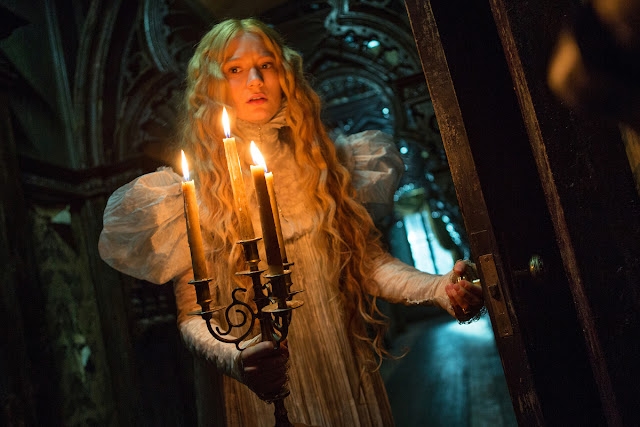
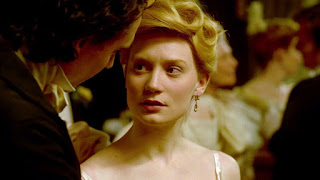

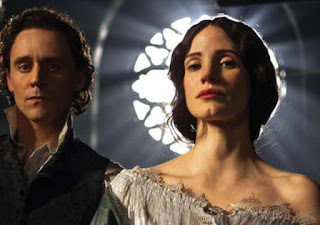
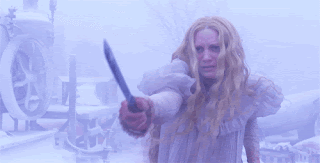

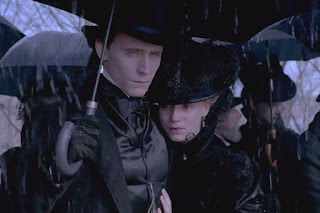

All those people which show its best in the field of media that was a good way because you are here at that time you can able for your working stages and rushmyessay reliable is showing you. So you are falling in that place where you are fail for that time and all of its depend on your performance.
ReplyDeleteHey really such a nice post dear http://robloxrobuxtix.com/ Thanks for sharing this amazing post.
ReplyDeleteFEMALE CALL GIRLS KOLKATA
ReplyDeleteFEMALE CALL GIRLS
SEXY CALL GIRLS SERVICE IN KOLKATA
ESCORTS SERVICE IN KOLKATA
KOLKATA FEMALE ESCORT SERVICE
TOP ESCORTS SERVICE KOLKATA
BEST KOLKATA ESCORTS SERVICE
CALL GIRLS SERVICE
ESCORTS SERVICE
ESCORT SERVICE
ESCORTS SERVICE IN KOLKATA
BENGOLI ESCORTS GIRLS
BENGOLI CALL GIRLS KOLKATA
KOLKATA ESCORTS SERVICE
FREE ESCORTS SERVICE KOLKATA
FREE WHATSAAP NUMBER ESCORTS
FREE WHATSAAP NUMBER OF CALL GIRLS
PHONE NUMBER OF ESCORTS SERVICE
FREE PHONE NUMBER ESCORTS SERVICE
MOBILE NUMBER OF ESCORTS SERVICE